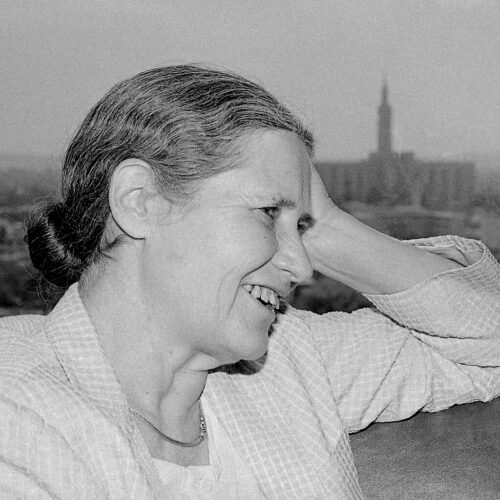

I lost religion in a breath; Heaven fled from me on the wings of Reason…
Doris Lessing, Under My Skin: Volume One of My Autobiography, to 1949 (1994)
Doris Lessing was a British-Zimbabwean novelist, short story writer, and humanist. An atheist from childhood, she used her writings to examine humanity and society, becoming known for her versatility, intellectual depth, and willingness to challenge prevailing ideologies. Awarded the Nobel Prize for Literature in 2007, Lessing was commended for the ‘scepticism, fire, and visionary power’ with which she examined the world.
I had begun, in short, to colour in the map of the world with the hues and tints of literature. Which does two things (at least). One is to refine your knowledge of your fellow human beings. The other is to tell you about societies, countries, classes, ways of living.
Doris Lessing, Under My Skin (1994)
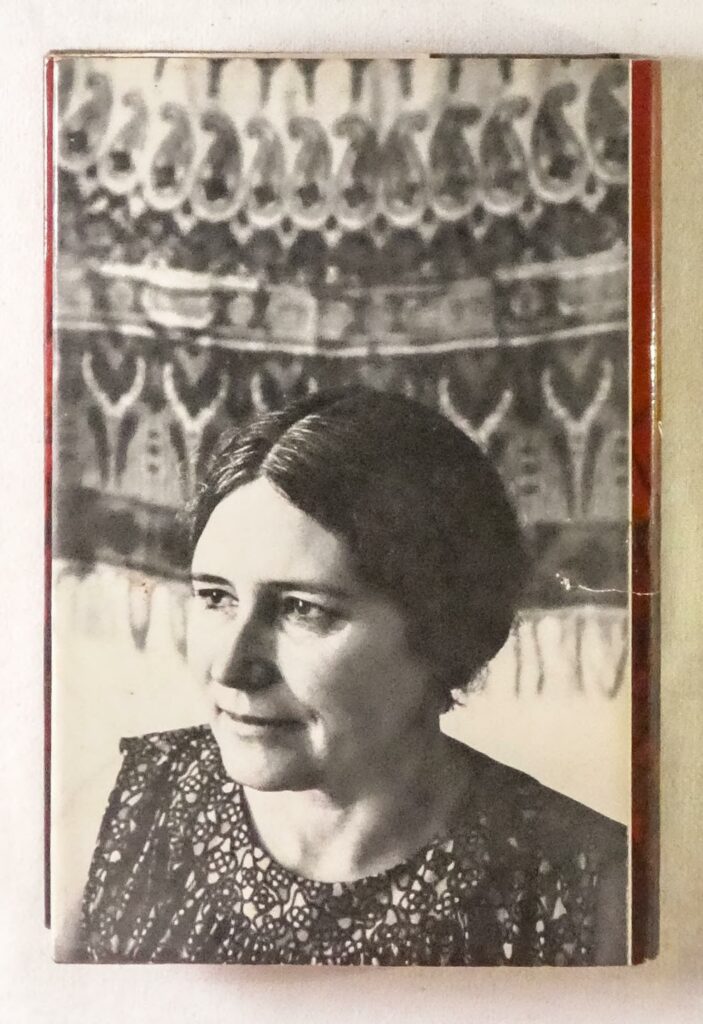
Born Doris Tayler in Kermanshah, Persia (now Iran), raised in Southern Rhodesia (now Zimbabwe), and later moving to London, Lessing’s life across diverse cultural landscapes deeply influenced her perspectives on race, gender, politics, and religion. She is perhaps best known today for her novels The Grass is Singing (1950), The Golden Notebook (1962), and The Good Terrorist (1985), but she also explored her philosophical ideas in works of science fiction, as well as writing poetry, essays, and autobiography.
Lessing’s early life included experiences as a communist activist and involvement in leftist politics. She joined the Communist Party in Southern Rhodesia but later became disillusioned, distancing herself from it. The scepticism she felt toward religion extended to political ideologies. Lessing was open in her atheism. Throughout her career, she addressed religious themes and critiqued organised religion in various works, as well exploring the evolution of her own ideas through autobiographical writings.
In her second volume of autobiography, Walking in the Shade (1997), Lessing wrote of her childhood dismissal of religion, while still attending a convent school:
I knew exactly the moment when I had shed religion and God: it was when my mother, upset that her child had a crush on the Virgin Mary — that is what it amounted to — recited a list of the misdeeds of the Roman Catholics, all of which could be matched by the Protestants; and with what relief I heaved the whole itchy and uncomfortable burden off my shoulders for the brave stoicism of atheism.
She later wrote of the way in which a shared value system, underpinned by this atheist ‘stoicism’, drew her to others in that freethinking minority. Lessing described how upon declaring herself an atheist she ‘at once… found a thousand allies’. One of these would be her first husband, Frank Wisdom. About him she wrote:
We were both rational, and un-religious, perhaps I should say anti-religious. Quite hard to find now that particular tone or timbre of thought, for it was a long way from ‘Science, not Religion’, more a question of personal integrity. We wore our atheism, or agnosticism (we might debate the exact degree of either) like religious medals. Because we were in a minority we felt close, intimate; believed ourselves to be made of the same stuff and substance…
Doris Lessing, Under My Skin (1994)
She and Wisdom had two children together, before divorcing in 1943. She married German Jewish refugee Gottfried Lessing, leader of the communist group of which she was then part, in 1945. They divorced four years later, before 1950’s The Grass is Singing propelled Doris Lessing to fame. Of her life in England she wrote:
I felt as if my real life was beginning when I at last arrived in war-torn, grubby, cold England. And of course, it was. Since then, I have written, that has been my life.’
Doris Lessing, autobiographical contribution for the Nobel Prize, 2007
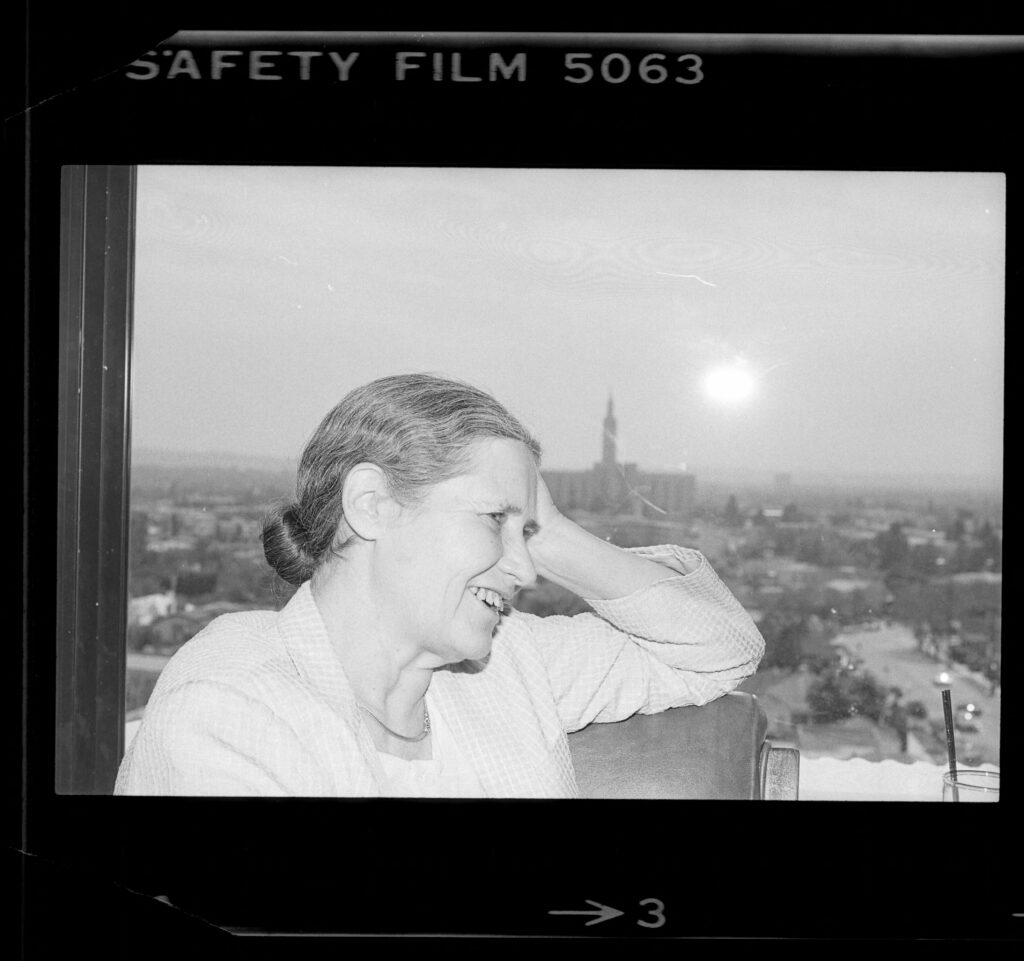
In addition to her writing, Lessing remained active in political causes. She was an early part of the Campaign for Nuclear Disarmament, and joined the first Aldermaston march. She was openly critical of the racist policies of South Africa and Southern Rhodesia, which led to her being banned from entering either country. In 1967, as a contributor to Authors Take Sides on Vietnam, she was explicit in her opposition to the war. For her, writing was a vital way of looking at the world – and encouraging others to. As she suggested in 1987: ‘I see writers generally in every country, as a unity, almost like an organism, which has been evolved by society as a means of examining itself.’
Across an ever evolving career in literature, Lessing received numerous awards and a number of honorary degrees. In 2007, she was awarded the Nobel Prize in Literature, with the Nobel committee describing her as an ‘epicist of the female experience, who with scepticism, fire, and visionary power has subjected a divided civilization to scrutiny.’ On being told the news by a group of reporters, Lessing’s first reaction was ‘Oh Christ!’
Doris Lessing died at home in West Hampstead, London on 17 November 2013.
Let us suppose our world is ravaged by war, by the horrors that we all of us easily imagine. Let us suppose floods wash through our cities, the seas rise. But the storyteller will be there, for it is our imaginations which shape us, keep us, create us – for good and for ill. It is our stories that will recreate us, when we are torn, hurt, even destroyed. It is the storyteller, the dream-maker, the myth-maker, that is our phoenix, that represents us at our best, and at our most creative.
Doris Lessing, ‘On not winning the Nobel Prize’, Nobel Lecture, December 2007
Doris Lessing’s legacy is one of immense literary achievement, as well as a perpetual willingness to confront and challenge prevailing norms, whether political, social, or religious. Her writings reflect a profound humanism and a commitment to questioning the status quo, with a view to confronting injustice and remaking the world for the better.
Doris Lessing | Nobel Prize
Doris Lessing obituary | The Guardian
Where to start with Doris Lessing: a guide to her best works | The Booker Prizes
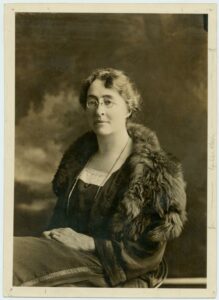
Mary Sheepshanks was a humanist who saw her feminist, pacifist, and cosmopolitan beliefs as being natural expressions of her humanist […]
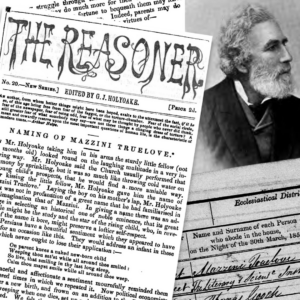
On 11 November 1849, at the Literary and Scientific Institution, 23 John Street (now Whitfield Street), London, George Jacob Holyoake […]
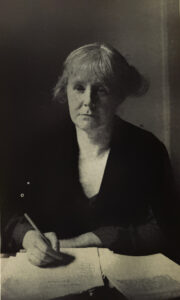
What is this ban on abortion? It is a sexual taboo, it is the terror that women should experiment and […]
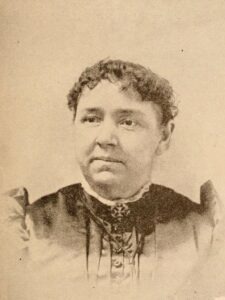
Man for man in larger sense does what heaven fails to do. Sara A. Underwood, quoted by Rufus K. Noyes […]